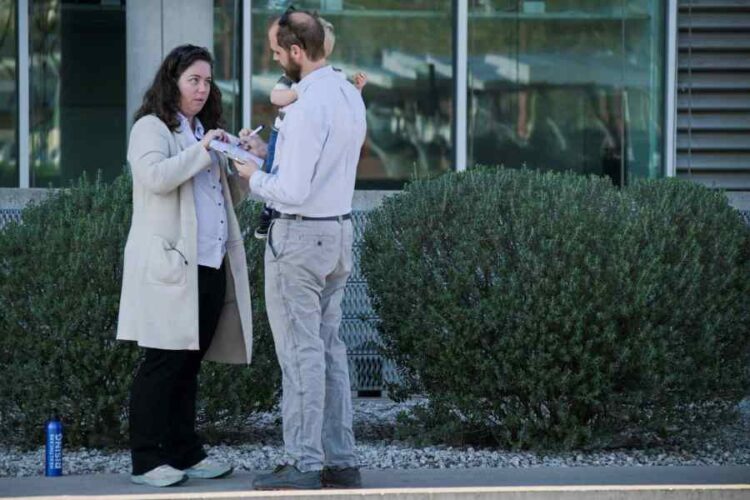Arizona’s U.S. Senate race has evolved into a fierce contest defined by heated debates on abortion rights and immigration policies.
These contentious issues have not only dominated political discourse but also reshaped the dynamics of the campaign. Candidates and voters alike are engaged in passionate discussions, reflecting the deeply held beliefs and values at stake in this pivotal election.
The intersection of abortion and immigration has intensified the competition, highlighting Arizona’s significance as a key battleground state.
As candidates maneuver to appeal to their respective bases and sway undecided voters, the race has become emblematic of broader national debates on social and political issues.
With the outcome poised to influence the trajectory of policy decisions at both the state and federal levels, the stakes have never been higher in Arizona’s political landscape.
The Resurgence of the Abortion Debate
The resurgence of the abortion debate in Arizona has injected fresh energy and urgency into the political landscape. Following the Arizona Supreme Court’s decision to reinstate a stringent abortion ban, the state’s political arena has been ablaze with impassioned discourse.
Ruben Gallego, a prominent Democratic candidate and current U.S. Representative, swiftly condemned the court’s ruling, denouncing it as a regressive step that threatens reproductive rights. Gallego wasted no time in criticizing his opponent’s stance on the issue, highlighting former television newscaster Kari Lake’s previous support for the 1864 law underlying the ban.
Gallego’s condemnation of the abortion ban is rooted in his belief that it represents a dangerous infringement on women’s rights and autonomy.
He has vehemently opposed any attempts to curtail access to reproductive healthcare and has vowed to fiercely defend the rights of women in Arizona.
By drawing attention to Lake’s past support for the 1864 law, Gallego seeks to underscore the fundamental differences between their respective positions on abortion rights.
The reinstatement of the abortion ban has reignited longstanding debates over the role of government in regulating women’s bodies and the moral and ethical considerations surrounding abortion.
Proponents of the ban argue that it is necessary to protect the sanctity of life and uphold traditional values, while opponents view it as a draconian measure that threatens women’s health and freedom.
Gallego’s swift and vocal opposition to the abortion ban reflects his commitment to progressive values and his determination to safeguard the rights of all Arizonans.
He has positioned himself as a staunch advocate for reproductive rights, pledging to fight tirelessly against any attempts to roll back the hard-won gains of the women’s rights movement.
As the abortion debate continues to roil Arizona’s political landscape, Gallego’s principled stance has resonated with many voters who view reproductive rights as a fundamental aspect of personal liberty.
With the November election looming large, the abortion issue is likely to remain a focal point of contention, underscoring the high stakes involved in Arizona’s fiercely contested Senate race.
Navigating the Abortion Divide
As the leading Republican contender in Arizona’s Senate race, Kari Lake has found herself navigating a delicate balance on the contentious issue of abortion.
While she has previously expressed support for the 1864 law that forms the basis of the abortion ban, Lake has recently engaged in discussions with Arizona lawmakers about the possibility of overturning the controversial legislation.
However, during a recent public address in Golden Valley, Arizona, Lake conspicuously avoided direct commentary on abortion, choosing instead to focus her rhetoric on immigration concerns.
At the event, attended by approximately 100 supporters, Lake’s impassioned advocacy for stricter immigration policies struck a chord with her audience.
She received fervent backing for her stance on immigration, including calls for the immediate funding and construction of a border wall.
By emphasizing her commitment to bolstering border security and cracking down on illegal immigration, Lake sought to galvanize support among conservative voters who prioritize immigration reform.
Lake’s strategic pivot towards immigration issues reflects her efforts to appeal to her Republican base while sidestepping the potential political pitfalls associated with the abortion debate.
By refraining from direct commentary on abortion during her address, Lake aimed to avoid alienating voters with divergent views on the issue, instead focusing on rallying support around her stance on immigration.
The palpable tension surrounding these issues reflects the significance of Arizona’s role as a battleground state in both the upcoming presidential election and the battle for control of the U.S. Senate. Strategists from both parties have closely analyzed the implications of the recent abortion ban ruling, anticipating its potential impact on voter sentiments and political alliances.
For Gallego and his Democratic allies, the reinstatement of the abortion ban presents a strategic opportunity to mobilize moderate voters, as well as key demographic groups such as young voters, women, and voters of color.
They view the ruling as a rallying cry to galvanize support for their campaign and capitalize on public outrage over perceived threats to reproductive rights.
The convergence of abortion and immigration as defining issues in Arizona’s Senate race underscores the state’s pivotal role in shaping national political discourse.
As candidates vie for support and voters grapple with complex policy debates, the outcome of the Senate race will not only determine Arizona’s political trajectory but also reverberate across the nation, shaping the contours of future policy debates and electoral strategies.










